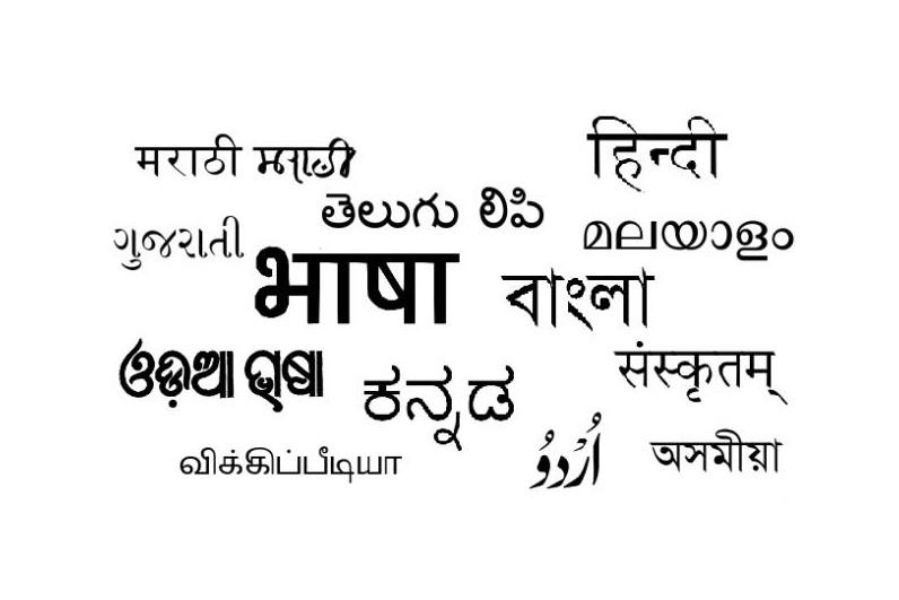Telugu speakers reduce over the years; Only Hindi, Gujarati grown as languages
By Amritha Mohan
Highlights
- English medium in Govt schools adding to decrease, says Telugu experts
Hyderabad: It is quite possible that Telugu is the fastest growing Indian language in the United States of America but the same cannot be said of its status in Telangana State and Andhra Pradesh.
According to the Language Report from Census 2011, released in 2018, the number of Telugu speakers in the country has been decreasing over the years.
This implies that Telugu as a language is not really growing, if one were to consider the population. For instance, in 2001, while the percentage of Telugu speakers to the total linguistic population in the country was 7.19 percent, it now stands at a pitiable 6.7 percent.
Interestingly, Hindi and Gujarati are showing a positive growth rate. In 2001, approximately 41 per cent of the total population spoke Hindi, which in 2011 has touched 43.
| Language | 1991 | 2001 | 2011 |
| Hindi | 39.29 | 41.03 | 43.36 |
| Bengali | 8.3 | 8.11 | 8.03 |
| Marathi | 7.45 | 6.99 | 6.86 |
| Telugu | 7.87 | 7.19 | 6.7 |
| Tamil | 6.32 | 5.91 | 5.7 |
| Gujarati | 4.85 | 4.48 | 4.58 |
| Urdu | 5.18 | 5.01 | 4.19 |
| Kannada | 3.91 | 3.69 | 3.61 |
| Odia | 3.35 | 3.21 | 3.1 |
| Malayalam | 3.62 | 3.21 | 2.88 |
| Punjabi | 2.79 | 2.83 | 2.74 |
However, language experts have a different take on the growth phenomenon.
2011 Census data ‘doctored’
Last September, Union Home Minister Amit Shah had stated on the need to make Hindi as the country’s common language. Amidst widespread controversy, several linguists argued that what the Census calls as ‘Hindi’ is in fact an amalgamation of different languages, like Bhojpuri, for instance. In fact, founder of People’s Linguistic Survey of India, G.N Devy opines that the 2011 Census data was “heavily doctored.” “It presents Hindi as the ‘mother tongue’ of over 52 crore people by subsuming more than five crore claimants of Bhojpuri and more than nine crore speakers of nearly 61 other languages,” he wrote in a newspaper article.
English v/s vernacular: Are students not speaking Telugu?
Some Telugu scholars believe that the emphasis on English medium education in government schools is taking a toll on Telugu.
Speaking to NewsMeter, Prof. Pillalamarri Ramulu from the Department of Telugu, University of Hyderabad said, “It is alarming to know that while Telugu population is not really decreasing, the number of Telugu speakers is on the downslide. You can see a similar trend in the entire south India because they are passionate about English medium education, for employment reasons obviously. We need to employ strong Telugu-medium schools which provide good training in English.”
There is another facet to the English-medium controversy as well. Eminent writer Kancha Ilaiah asserted that English should be the language of the marginalised communities. Highlighting this point, Munna Sannaki, a Ph. D scholar from Hyderabad Central University said, “Historically, education itself was denied to marginalised communities. English language was one of the ways we could surpass this discrimination. So, while dominant castes can afford to reject Telugu language, we have to struggle to get proper English training in government schools.”
However, other Telugu linguists and culture enthusiasts have hopes from on Telugu millennials and diaspora.
Mammidi Hari Krishna, Director, Department of Language and Culture, Telangana said, “I don’t think Telugu speakers are decreasing, because the data doesn’t take into account the new forms of Telugu usage among people. Take the case of the Telugu diaspora. When they go abroad, they realise their Teluguness and flaunt the language as part of their identity. Thanks to social media and digital technology, people are taking efforts to learn the language online, via Google and otherwise. This is a positive trend.”